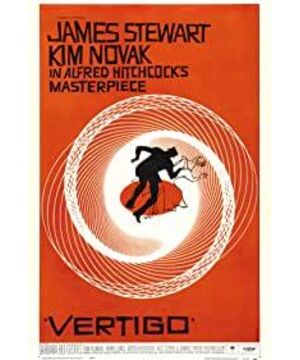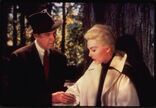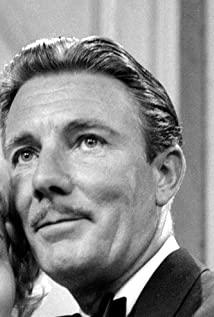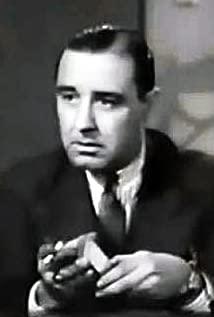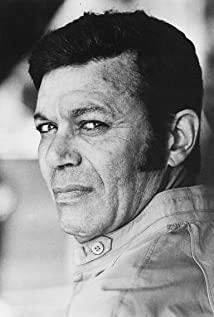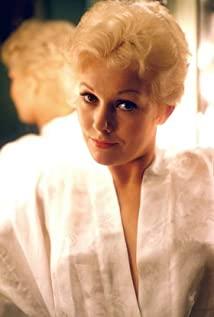The fear of heights symbolizes the fear of the abyss of the origin of death (the inner will to die). And what Madeleine symbolizes is the manifestation of death: the self-deathing great-grandmother not only represents the death of the past, but also the will of death we inherited from the depths of our hearts: just like the immortal redwoods, the will to death will never Will die, but we will. But Madeleine is extremely beautiful and has a strong attraction to the protagonist. The protagonist's countless hopes to save Madeleine is also to prevent the true formation of death (the final completion of the will to death), so as to reflect his will to overcome death. At the same time, the protagonist’s interaction with Madeleine is also a kind of reconciliation between the protagonist’s attempt to reconcile with the will to die (I love you even though I need to die). But it is too late... all this is when Madeleine "really" falls downstairs Reaching the final climax, Madeleine's manifestation of the will to death has been finally realized. The protagonist is terrified, because he thinks all this represents the eternal abyss of death in everyone's heart. But the protagonist is not only fear, but also a huge temptation after the final realization of the will to death: the dizziness is not only because of the abyss below the fear but also because I deeply feel that I instinctively want to let go of my hand Impulse. The temptation from the abyss. It is precisely because of this that the protagonist crazily wants to find Madeleine and love her: He wants to marry death. It is also for this reason that the protagonist finds Judy and shapes her into Madeleine (I would love you if you are like her. ) This is also the process of deifying the will to die (the image of Madeleine), but it is also the process of the protagonist trying to control it. If the last necklace does not appear, the relationship between Judy and the protagonist will return to normal love (although Judy got the protagonist’s love by virtue of the projection of Madeleine’s image, the protagonist also knows very clearly that Judy is just the phantom of Madeleine (essentially speaking) The protagonist does not want Judy to truly become Madeleine, because this will detract from the deified will to die) Judy will also subtly change the protagonist’s projection of Madeleine's image when getting along, so that the protagonist will truly fall in love with himself) But unfortunately, The last necklace makes all this a tragedy: the protagonist knows that Judy is Madeleine, so the whole story of Madeleine is false, and the realization of Madeleine as the will to die collapses instantly: there has never been a will to die, this Everything is just an illusion set up by Madeleine's husband. The protagonist’s anger actually comes from all the true nature of his inner heart (death itself) that he previously identified and love is revealed as a result of the will of others: this is a kind of blasphemy. So the protagonist no longer feels about the abyss Fear or dizziness. But when Judy accidentally fell downstairs, Judy himself once again completed the absolute manifestation of the will to death: this is no longer the design of others but the real destiny. This is the real abyss: for people to it Any way of doing (image projection, love, seeking reconciliation, trying to conquer, deification) is a kind of indifferent and absolute existence that is indifferent. It is not a fantasy created by others, nor is it a god image created by the hero himself, but a real death. The protagonist's fear of heights finally returned. And this time he understood that he couldn't do anything, couldn't conquer it, couldn't combine with it, eternal dizziness. So the protagonist no longer feels afraid or dizzy about the abyss. But when Judy accidentally fell downstairs, Judy himself once again completed the absolute manifestation of the will to death: this is no longer the design of others but the real destiny, this is the real abyss: for people to it Any way of doing (image projection, love, seeking reconciliation, trying to conquer, deification) is a kind of indifferent and absolute existence that is indifferent. It is not a fantasy created by others, nor is it a god image created by the hero himself, but a real death. The protagonist's fear of heights finally returned. And this time he understood that he couldn't do anything, couldn't conquer it, couldn't combine with it, eternal dizziness.
In the whole movie, if Madeleine is the spokesperson of death, then Midge is the spokesperson of the goddess of life: she is the only woman who really cares about the male protagonist and a symbol of mother: the word motherly appears more than once. Many people say that this role is not important, but in fact Midge is the beginning of everything: the male protagonist's rejection by Midge leads him to the mysterious death symbolized by Madeleine. It can be said that Midge is the only shining point of this movie, but she was erased and disappeared early when the hero was completely devoted to the will of death (treatment of depression in the hospital). You don't even know I am here, do you? ……I know he loved her and he still does. I also know music can't heal. Death opened his arms.
Besides Judy, she is a twisted goddess of life, used to fill and maintain the statue of death: made by two men into the incarnation of Madeleine. She thinks that love and dedication can truly get rid of the obsession with death and redeem the protagonist's life. But all this was in vain, she was finally sacrificed to summon real death (rather than just the phantom of the will of death). The death of the goddess of life.
Men have deviated from the existence of life from the beginning. But in this way, we are also exposed to real death. Is this a kind of luck or a kind of sadness?
View more about
Vertigo reviews


